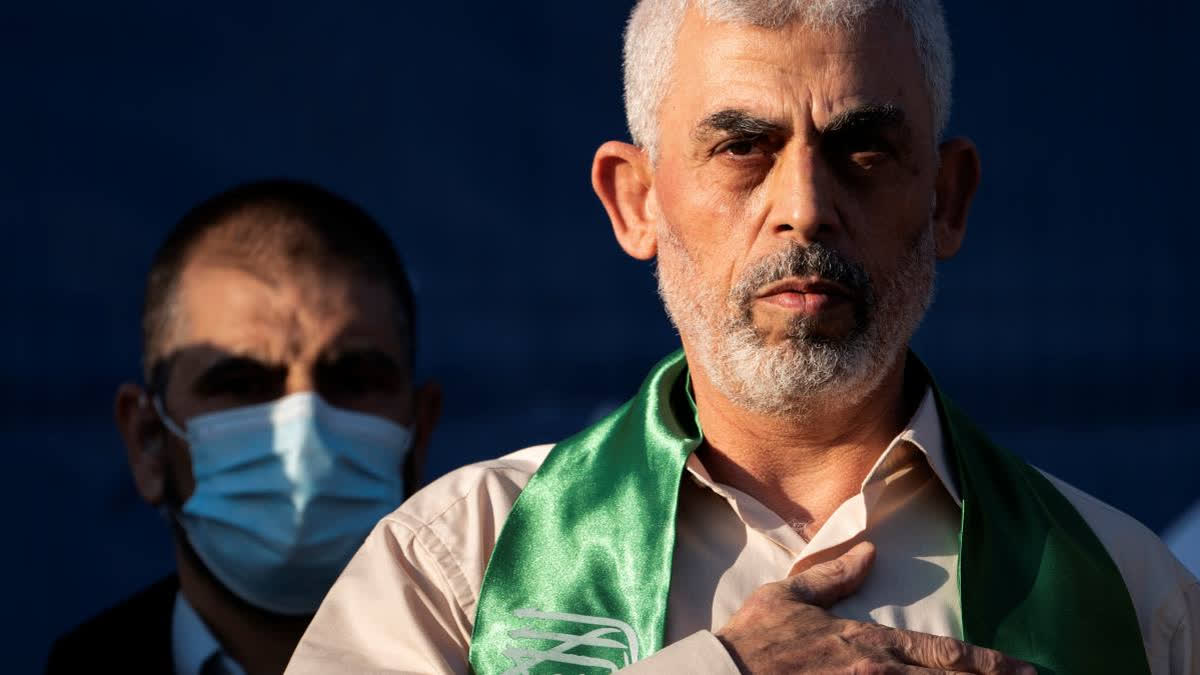Tel Aviv:Israel's killing of Yahya Sinwar, Hamas' top leader and the mastermind of the group's Oct. 7 attack, is a dramatic turning point in the brutal yearlong war that it touched off.
Sinwar's killing on Thursday decapitates the Palestinian militant group that has already been reeling from months of assassinations up and down its ranks. And it is a potent symbolic achievement for Israel in its battle to destroy Hamas.
The killing, coming just 10 days after Israelis and Palestinians marked a year since the deadliest fighting in their decades-old conflict erupted, could set the stage for how the remainder of the war plays out, or even prompt its conclusion — depending on how Israel and Hamas choose to proceed.
Sinwar's death could serve as an off-ramp for Israel toward ending the war
Sinwar, who was appointed head of Hamas after its previous leader was killed in a blast in July blamed on Israel, spent years building up Hamas' military strength and is believed to have devised the Oct. 7, 2023, attack. After that assault, when Hamas-led militants killed some 1,200 people and abducted about 250 others, Israel pledged to destroy Hamas and kill each one of its leaders.
With Sinwar at the top of that wanted list, his death is a major achievement for Israel. Analysts say Sinwar's killing has presented Israel, which has struggled to articulate an exit strategy from Gaza, with an off-ramp to end the war.
"This would really be the cherry on the icing of the cake for Israel," said Nomi Bar-Yaacov, an associate fellow of the International Security Program at the Chatham House think tank in London. "It should be easier to reach a deal."
With the architect of the Oct. 7 attacks eliminated, Prime Minister Benjamin Netanyahu could now tell Israelis that one of the war's aims has been reached. Politically, that might allow him to be more flexible on a cease-fire deal that ends the war in exchange for hostages — a condition he has so far refused to accept, at least in part, critics say, because it could threaten his rule.
Sinwar's death could have broader implications, depending on Israel's next moves
Analysts said the achievement was such a gamechanger that it was an opportunity for Israel to signal that it is ready to end the fighting further afield in the region, including in Lebanon where Israel is battling Hezbollah.
"The opportunity to end the war entirely, as well as in Lebanon, ... it is entirely in our hands," Giora Eiland, a former head of Israel's National Security Council, told Israeli Channel 12 News, saying Israel must use Sinwar's death to present its conditions for ending the wars on both fronts.
The families of hostages in Gaza had a similar message for Netanyahu. A group representing the families welcomed Sinwar's killing but recognizing the potential opportunity, called on Israel to reconcentrate its efforts toward negotiating a deal.
"Netanyahu, don't bury the hostages. Go now to the negotiators and the Israeli public and present a new Israeli initiative," Einav Zangauker, whose son Matan is held in Gaza, said in a post on social media.
Khaled Elgindy, a senior fellow at the Washington-based Middle East Institute think tank, cautioned that Netanyahu has shown few indications that he is looking for an end to the conflict, with the army intensifying its operations in the north of Gaza in recent weeks.
